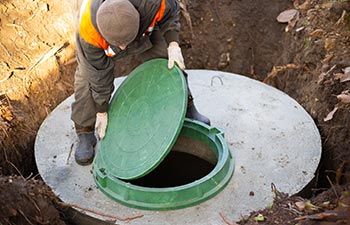
Your septic system is an essential system to dispose harmful wastewater from your home. While it is intricately designed to keep your plumbing effective and your family safe, there are situations and malfunctions that can lead to contamination of nearby water sources. In doing so, your family, pets and houseguests could be at risk.
Here are some of the most common warning signs that your septic system may contaminating your water:
- Delayed or Neglected Septic Pumping
- The septic tank serves as a holding space for waste to decompose and separate into liquid and solids. The liquids flow out for safe disposal while the solids accumulate in the tank. If the tank is not routinely pumped, the solids can fill the tank and cause it to overflow. In such cases, the waste from the tank can spill through any available opening and even escape to nearby water sources before it has been properly filtered.
- System Damage
- A structurally sound septic system restrains the dangerous effluent into certain channels. However, if there are damages that allow the effluent to flow out of these confinements, contamination is possible. Inlet and outlet pipe damage can also cause this.
- Cracked Tank
- Septic tanks can be constructed out of concrete, plastic or fiberglass. Concrete tanks, however, tend to suffer cracks over time. Again, this allows untreated wastewater to seep out and contaminate groundwater.
- Drainfield Flooding
- Just like your tank, your specific septic drainfield is designed to hold a certain amount of waste at a time. If extra volume is added to the drainfield (such as excessive rainwater), it can lead to drainfield failure or flooding – which makes it hard to prevent contamination.
- Drainfield Compaction
- The drainfield should have a good balance of compacted and loose soil. If it is too compacted (like what happens when you park heavy machinery on your drainfield), the water cannot penetrate the drainfield enough to be treated.
- Untreatable Wastes
- Not every waste that goes into your septic system can be properly disposed of. When non-biodegradable or inorganic wastes get flushed or drained, it will pass through the septic system and into the groundwater in its untreated state. Examples of inorganic wastes include pesticides, drugs, household cleaners and diesel.
At Metro Septic, we want to help customers keep a safe and healthy septic system. If you are concerned that your septic system is contaminating nearby water sources, please contact us immediately.

